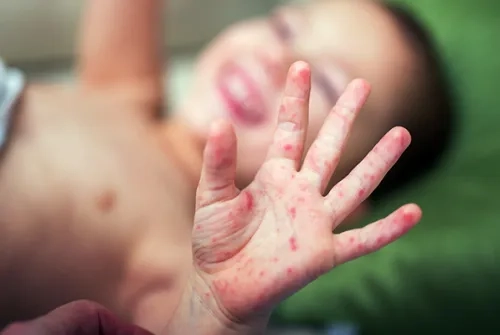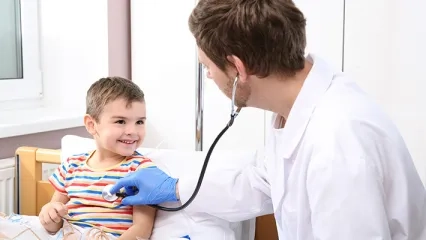Alo Yeditepe
Alo Yeditepe
Hand Foot and Mouth Disease Symptoms and Prevention Methods
With the opening of the summer season, summer infections began to show themselves. Hand, foot and mouth disease, which can spread rapidly especially among children, can be a source of concern for parents. Pediatric Infectious Diseases Specialist Assoc. Dr. Manolya KARA drew attention to the children's pools, which are among the common areas of use in the summer. Assoc. Prof. points out that older children and even adults can be infected with this virus. Dr. KARA emphasized the importance of paying attention to hygiene rules and recognizing the symptoms early in order to be protected from this disease.
What is Hand Foot and Mouth Disease?
Hand, foot and mouth disease, which is especially common in young children, is a viral disease in which fluid-filled rashes (vesicles) are observed in the mouth, on the soles of the hands and feet and in the diaper area. Pointing out that older children and even adults can be infected with this virus, our expert explained that this infection is more common, especially in the summer months when pools are widely used.
What Causes Hand Foot and Mouth Disease?
Our expert pointed out that hand, foot and mouth disease can be easily transmitted through direct contact with infected people or through contact with infected surfaces, and gave the following information about the modes of transmission:
Is Hand Foot and Mouth Disease Contagious?
“Contagion can occur by direct contact with the nasal discharge, saliva, feces or body fluids of an infected person, or by inhaling virus particles spread in the air through the coughing or sneezing of an infected person. In addition, it is extremely important to clean common areas and objects such as toys, especially common areas used by children, as the disease can be transmitted by touching the mouth, nose or eyes after touching surfaces such as toys, door handles, food and drink containers contaminated with the virus. Another way of transmission is contact with the mouth with hands contaminated with the feces of infected people. This point is especially important for mothers or caregivers of babies with the disease. Therefore, hand washing after changing diapers is especially important.”
Explaining that patients are highly contagious, especially in the early stages, our expert said, "For this reason, the disease can easily spread in places such as sharing toys infected with the virus, common areas, and children's pools."
What are the Symptoms of Hand Foot and Mouth Disease?
Our infectious diseases specialist explained that symptoms usually appear within 3-7 days after virus infection and listed the symptoms of the disease as follows: “Mild or moderate fever, accompanied by sore throat, headache and muscle aches, weakness, vomiting, abdominal pain or diarrhea are the symptoms of the disease.” It is among. Distinctive fluid-filled rashes can be observed, especially in and around the mouth, on the soles of the hands and feet, and in the diaper area. The patient has difficulty feeding due to lesions in the mouth. With these symptoms, the disease can be diagnosed clinically. However, if the fever is prolonged or there are complications, blood tests can be used.”
What should be taken into consideration to prevent Hand Foot and Mouth disease?
Underlining that hand hygiene is the most important strategy to be implemented to protect against the disease and prevent its spread, our expert gave the following information about protection methods: “Frequent and correct washing of hands is one of the most effective ways to prevent the spread of the disease. Hands should be washed especially before eating, after using the toilet and after contact with a sick person. Again, covering the mouth and nose with a tissue or elbow when coughing or sneezing prevents the spread of the virus. Used tissues should be thrown away immediately and hand cleaning should be ensured. In addition, personal items such as towels, glasses, cutlery, toys should not be shared, and surfaces that may be contaminated with the virus should be cleaned and disinfected regularly. Contact with sick people should be avoided and infected children should never be sent to school or nursery. In addition, adequate and balanced nutrition is important as keeping the immune system strong can reduce the risk of infection.”
About
Faculty and Year of Graduation:
Istanbul University Cerrahpasa Medical Faculty Uğur Derman English Programme-2008
”
See Also
- What is Whooping Cough? The Importance of Whooping Cough Vaccination During Pregnancy
- What is Molluscum Contagiosum? What are the Symptoms?
- Which Vaccine Should be Given in Adolescence and When?
- Precautions to Take Protecting Children from Infections
- What is Measles? Symptoms and Treatment
- Flu Vaccination in Children
- Congenital CMV Infection in the Neonatal Period
- Is the Incidence of Reflux Increasing Among Children?
Alo Yeditepe





